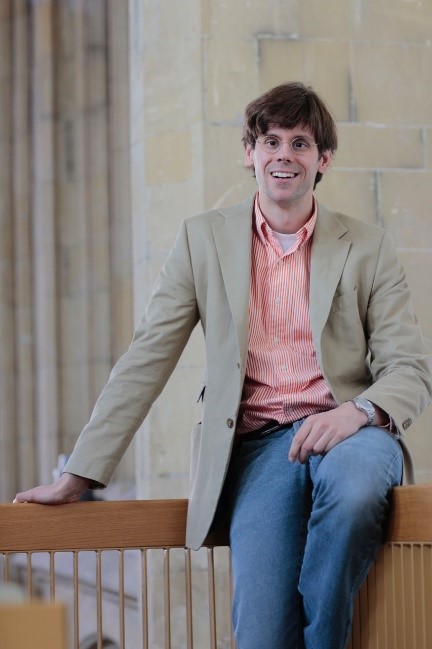Letter from the University Council

Dear Members of the UM Community,
September is a month full of new beginnings. People in the university community take up new roles, start new research projects, or enroll in new classes. And while we might sometimes be nostalgic for the lazy days of summer, it’s also kind of nice to get to work.
So too at the University Council. With many new members joining, the Council had a series of meetings, starting with a handover meeting with the outgoing members, to pass on information about ongoing issues. The new Council also spent a day learning about its role in university governance and reflecting on how it wants to work.
Next, the Council decided which members would sit on its three main working committees (Strategy, Research & Education, and Operations), as well as the Confidential committee, which deals with appointments to the Executive and Supervisory Boards but also prizes and honorary doctorates.
New at the helm
The Council then elected the chairs of the working committees and the vice chair, who together will make up the Presidium, which deals with the daily management of the Council.
I am pleased to announce that Amien Abid will be the vice chair of the Council this year, while the Strategy committee will be headed by Krithik Medwin Rock, the Research & Education committee will be chaired by Kim Kuypers, and Netty Bekkers will lead the Operations committee. You will hear from them on this blog in the future.
Plenary session with the Board
On September 27, the Council had its first official plenary meeting with the Executive Board. It was a relatively light meeting, in which the main issue was the university’s investment calendar. This gives an overview of the main strategic investments the university intends to make next year. Some of these investments are in buildings and facilities, such as the continuing renovation of UNS 50, but also investments in making our buildings more sustainable. In total, this will be about €46 million next year, which sounds like a lot, but should be seen in the context of an annual operational budget of around €600 million.
Research and education
Other investments relate to research and education, such as new bachelor’s and master’s programs, ICT innovation, internationalization, and various research institutes. It is important to keep in mind that these are just the investments the central university is making for new initiatives, and so these come on top of the normal budgets of the faculties and service centres. These other investments add up to about €16 million next year.
The Council had several questions, relating to how to promote sustainability and the funding of language education, but ultimately advised the Executive Board to proceed with these investments. The discussion of the investment calendar is the lead-up to the overall university budget that the Council will consider in the next few months. The Council will also start looking at the plans for the proposed engagement with the academic hospital, starting with an in-depth theme session examining the pros and cons in October.
More engagement
One thing the Council would like to work on next year is engagement with the community, sharing more of our work with staff and students, but also soliciting input from them. An opportunity that already exists, but isn’t used very often, is the Speakers’ Quarter; any group in the university can request the opportunity to address the Council, to draw its attention to important issues.
If you’d like to know more, feel free to get in touch with me at chair-ucouncil@maastrichtuniversity.nl.
Moreover, the Council has also created an Engagement committee that will develop new ways of communicating with the community. Keep an eye out for their first initiative….
Teun Dekker
Chair- University Council
-
 T.J. DekkerMore articles from T.J. Dekker
T.J. DekkerMore articles from T.J. DekkerTeun J Dekker (1980) is Professor of Liberal Arts and Sciences Education at University College Maastricht, where he teaches courses on the intersection of the Social Sciences and the Humanities, including History of Political Thought and Distributive Justice in Contemporary Political Philosophy.
As Professor of Liberal Arts and Sciences Education, his main duties are:
Other blogs:
Also read
-
Dear members of the UM Community,
As we start heading for the end of the academic year, it’s time for another update on what has been going on at the University Council.
-
Dear members of the UM Community,
The University Council does not only hold plenary meetings, during which all members of the Council meet with the Executive Board to formally consent to decisions and advise on policy proposals. A lot of work is done in three committees, covering Strategy, Research &...
-
Dear members of the UM Community,
As any gardener will know, the work you do when it’s cold and dark outside is the basis for results in the spring. So too at the University Council. Over the past weeks, the Council has been busy with a range of meetings that will hopefully lead to meaningful results...